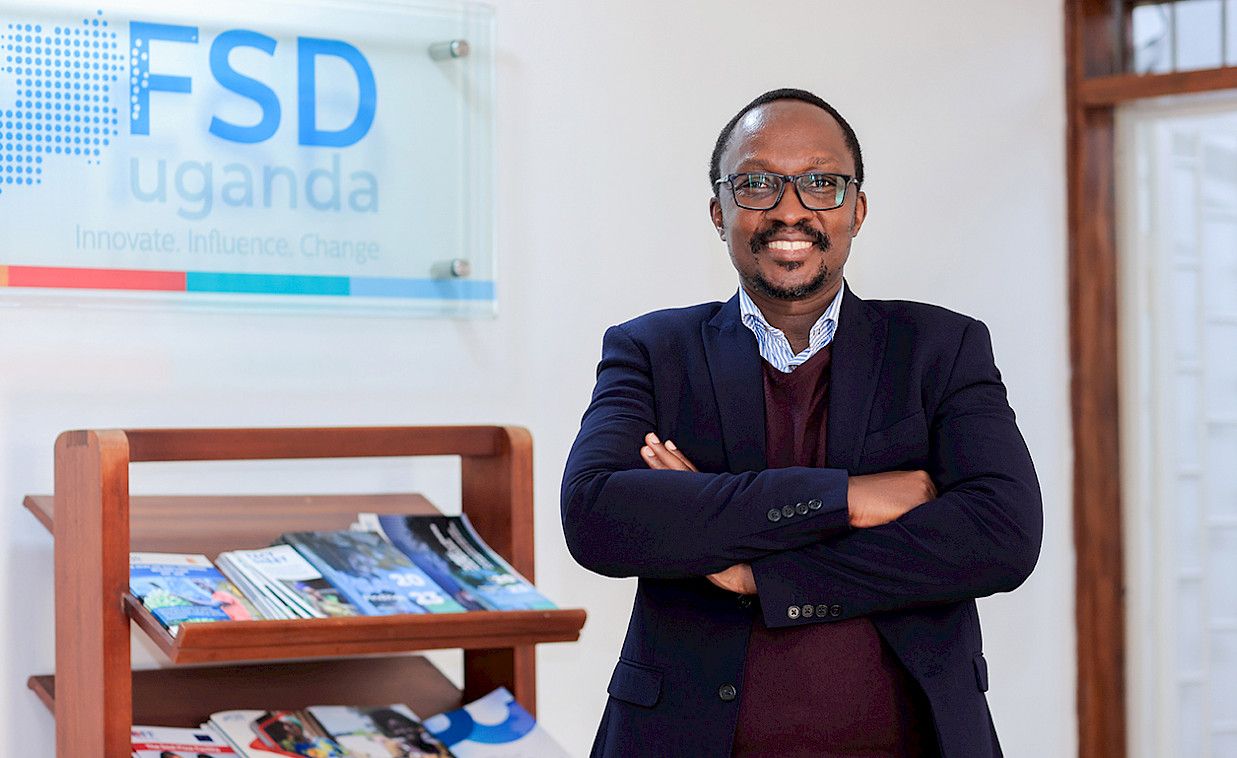Interview: The 3M’s That Stand Between You and Financial Independence
Saturday, May 10 2025 9:00 am
By Christine Kasemiire, Public Relations Officer Follow on LinkedIn
As Uganda’s life expectancy rises and informal earnings remain the norm, the conversation around saving for the future is now more relevant. In this insightful interview, Joseph Lutwama, Director of Programmes at Financial Sector Deepening Uganda (FSD Uganda), unpacks the evolving savings landscape and why boosting earning capacity could unlock a dignified retirement for Ugandans.
Tell us a bit about yourself and what you do.
My name is Joseph Lutwama, and I am the Director of Programmes at the Financial Sector Deepening Uganda. Financial Sector Deepening Uganda is a non-profit company limited by guarantee, it is fully funded by external donors, the Gates Foundation, Mastercard Foundation and the European Union. Our focus is on making financial markets work for the underserved and unserved segments of Uganda. We mainly work with the private sector, especially financial institutions and financial sector players and the public sector to address the market imperfections that hinder service delivery to those segments. We work with the government to ensure that there is an enabling environment to facilitate the delivery of quality services to the underserved population.
What is the savings trend of Ugandans today, in comparison to the past? Are more Ugandans saving or less?
FSDU Uganda sponsors a nationwide household survey every four years, and we track the demand for financial services at the household level. The last survey we did was in 2023, and the findings from that study showed us that there has been a slight increase in the number of Ugandans who are saving. In 2018, when it was last carried out, the proportion of Ugandans who were saving was 54% and in 2023, that had gone up to 60%. So you could say a substantial number of Ugandans are saving. It means that out of every 10 adult-aged Ugandans (16 years and above), six are saving.

That is good news, and how much on average are Ugandans saving?
On average, people are saving roughly under 300,000 annually, but that is for all income classes. When you break it down further, you find that the majority of Ugandans, 80% of adult Ugandans, are saving less than 250,000 per year. And when you analyse it even further, six out of 10 Ugandans actually save less than 150,000. What that essentially means is that their savings are not to earn a return, most of the savings are to be able to cater for unexpected or even expected expenses. It is also worth noting that most Ugandans save before consumption, meaning that whatever money they save is for a specific purpose. They don’t save after consumption, because someone who saves after consumption has disposable income, which they can afford to put away for a long time. Most of them have little savings, they cannot afford to put it in the bank because their day-to-day needs far exceed the money they have put aside and the limitation of accessibility and bank charges. Meaning that at any one point in time, that money will have a use.
The last part of your response ushers us into the next question. What did you discover are the common saving/investment vehicles that Ugandans are using?
Most Ugandans are saving informally, they are saving at home. They keep their money under the pillow. There is also a substantial number of people who keep their money on their mobile phones. However, the number of people who are keeping money at home has more than doubled. In 2018, this number was at 27%, and in 2023, it had grown to 44%. Those saving with the banks have also increased. They have slightly increased from 11% in 2018 to 15% in 2023.
What do you make of those insights, why is this so?
There is still a lot of challenge in saving formally due to a wide range of factors. The most predominant of all is the low levels of income and the high level of informality of Ugandan economic activity, which makes it very difficult for someone to consistently save. Because their income is not regular, both in terms of payment and amounts, they cannot follow a consistent pattern of saving. So that, coupled with low levels of financial literacy (your ability to make money, manage it and multiply it), makes it difficult to save formally, because saving formally requires a consistent income, some level of discipline, which is not expected informally.
So given this context, what opportunities are available for Ugandans to save and invest today?
There is a phenomenon I call the 3Ms. The First M stands for making money; that means that you need to work currently to make enough money. Secondly, you need to know how to manage that money ie to get the discipline of saving, budgeting, allocating it to different investment opportunities and lastly, multiplying it, which is an outcome of the investments that you have made. You need to be able to juggle and master those three if you are going to have a fulfilling life and retirement.
Could you please elaborate on the 3Ms?
To make money, the ultimate solution is for low-income earners to engage in economically viable and scalable economic activity to curb the uncertainty around their economic livelihood. If they have been in subsistence farming, they need to get into commercial, something similar to what the Parish Development Model is trying to do, giving them seeds, extension services, assets that they can work with, skills to then move away from unpredictable, uncertain economic activity to more commercial system, where you are connected to markets. You know that if I take out a loan, it alone will help me expand. I will earn this much money, and that same business will be able to pay off my loan.

And the second M?
Managing money and this ties in with the third M, multiplying money. For starters, everyone has to save. Whether you are saving under the pillow or whatever it is, you have to save. The issue is where to save. It makes no sense to put your money in the formal financial system if you have little money, and it is irregular. Formal financial institutions require you to consistently invest a certain amount of money regularly for you to be able to earn something, meaning that for Ugandans who are in the low-income brackets, the community-based savings are still the most preferable because they are more flexible to suit their needs. It is not until they have grown to a certain level where they are engaged in commercial activity with decent, regular, consistent incomes, that they then graduate to the formal financial system, which includes unit trusts, treasury bills and bonds, equities, among others.
Uganda’s life expectancy rates have been steadily increasing over the years, and according to the 2024 Census, it is currently at 68.5yrs. What does this mean for the population with regards to saving and a decent retirement?
The longer you live, the more challenging it becomes. The quality of your retirement is really based on the quality of your work life. For you to have a fairly decent income to sustain you through your retirement, you need to have developed a solid asset base that can continually generate income in your retirement. This could be land, rentals, investments, etc. Now, for that to happen, you must have worked hard, so there’s no silver bullet. The rule of thumb is that you should be able to earn at least 75% of the income that you were earning at the time of your retirement. So, for instance, if you are earning UGX200,000 at the time of your retirement, you should at least be able to earn UGX150,000 in retirement, but remember, you are not working, so it’s the asset you build that is paying for you. Your assets should have the capacity of generating at least 75%, meaning that there is no shortcut; whichever way you look at it, you need to increase your earning capacity.
Regionally, Pension/retirement funds have increased their mandatory member contributions. Do you believe this is the way to go?
There is nothing wrong with increasing your savings, because we all have to grow, but it must be proportionate to your capacity. It will not make sense if your earning capacity has not changed. If I am still informal with inconsistent incomes, in fact, it makes it difficult because you are taking away what can solve my problems today, and yet even the money you are keeping will not be of much value at retirement.







